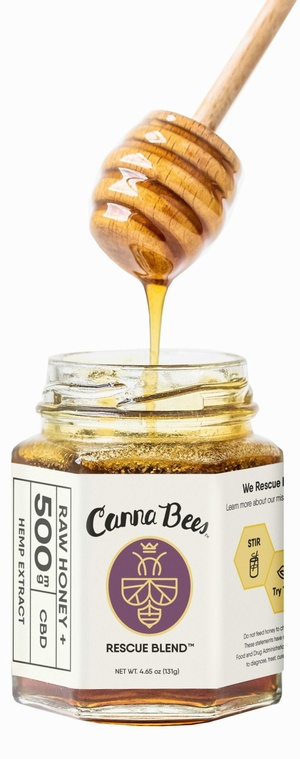But they can only make vague claims, and only using products that don't really do anything. If they make medical claims, or add drugs, they get into trouble. And it has become a common occurrence for CBD products as marijuana legalization has taken place in various states. The US Food and Drug Administration recently cracked down on five more of these companies, because they put the public at risk. Some of them even promote nasal, ophthalmic and inhalation administration.
The most recent five companies to get an FDA warning are:
- Bee Delightful
- G&L Wellness (C Better Daily)
- New Leaf Pharmaceuticals
- NextL3vel Services Group, LLC doing business as This Stuff Is Good For You
- Wellness BioSciences

Rescued bees? Organically grown CBD? Fine, people are gullible, but they can't claim it has supernatural medicinal power.
They have all violated the Federal Food, Drug, and Cosmetic Act (FD&C Act) because they have not gone through the FDA drug approval process and therefore are considered unapproved new drugs. It is not known whether they are effective for the uses claimed in labeling, what an appropriate dose might be, how they could interact with legitimate medicines or other products or whether they have dangerous side effects or other safety concerns. In addition, the manufacturing process of these unapproved CBD-containing drug products has not been subject to FDA review as part of the human or animal drug approval processes, so it is not known what the manufacturing conditions of, or contaminant levels in these products may be.
Under the FD&C Act, any product intended to diagnose, cure, mitigate, treat or prevent a disease, and any product (other than a food) that is intended to affect the structure or function of the body of humans or animals, is a drug. New human and animal drugs must be approved by the FDA or conform to a "monograph" for a particular drug category, as established by FDA's Over-the-Counter (OTC) Drug Review, before they can be legally marketed as drugs. CBD was not an ingredient considered under the OTC Drug Review.
The FDA has not approved any CBD products other than one prescription drug for the treatment of seizures associated with tuberous sclerosis complex (TSC), Lennox-Gastaut syndrome (LGS) and Dravet syndrome (DS) in human patients.
CBD has not been approved as a food additive and does not meet the statutory definition of a dietary supplement.





Comments